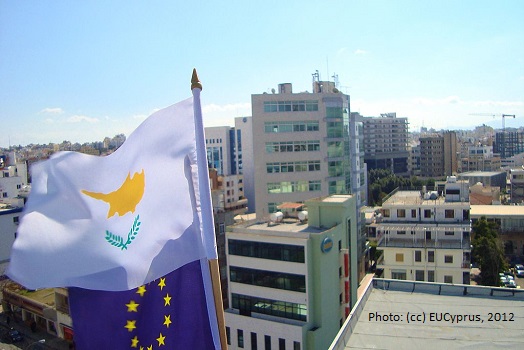Unlawful pushback practices from Cyprus to Lebanon have generated cases of family separation which the Cypriot Government refuses to address. These returns have raised concern as Syrian refugees in Lebanon face dire conditions and potential chain-refoulement to Syria. Speaking ahead of the EU Home Affairs Council in Luxembourg, Cyprus says it will present its own proposals and continue to press for “fair allocation” of arrivals to Europe.
As Syrians face rapidly deteriorating living conditions in Lebanon, many are seeking to flee to Europe. Those arriving in Cyprus are facing pushbacks. NGOs and the UN Refugee Agency (UNHCR) say such pushbacks are generating family separation and breaching international law. When a boat was intercepted at sea on 22 August, a heavily-pregnant 25-year old Syrian woman was taken to Cyprus while her husband and two children – aged one and three – were returned to Lebanon. After giving birth to her son the next day, she urged the Cypriot authorities to “show compassion” and allow her to be reunited with her family. In response, the government has said that only those with refugee status can benefit from family reunification. Yet, of the 7,700 Syrians arriving in Cyprus seeking asylum since 2018, less than two per cent have been granted refugee protection. On 21 September, Interior Minister Nicos Nouris rejected calls for family reunification, saying that “it would it would mean that should the 24,000 asylum seekers currently in the Republic request that we bring the rest of their families here, then we’d have to bring them over.”
Turnbacks at sea follow an agreement signed with Lebanon in March 2020 under which Cyprus can send back anyone attempting to reach the island by boat. Though this agreement is yet to receive the assent of the Lebanese parliament, it has been fiercely criticised for “legalising pushbacks” as it precludes any individualised assessment of peoples’ protection needs. UNHCR has called for an end to the practice, saying it puts lives in danger. During a trip to Cyprus on 28 September, European Commissioner Ylva Johansson said that she had “question marks” about the agreement, noting that EU law stipulates that people can seek asylum at the bloc’s sea borders.
EU and international law also forbids the return of anyone to any place they risk persecution or torture: the return of people to Lebanon however may result in “onwards refoulement”, as people risk deportation to Syria from the country. The boat intercepted and returned to Lebanon on the night of 22 August carried 69 refugees, three of whom were later deported to Syria and detained. Lebanon has also expelled Syrian refugees in other instances. A recent Amnesty International report confirmed that people returned to Syria risk torture, ill-treatment, detention, enforced disappearances and killings.
Refugee flight from Lebanon has been driven partly by the country’s devasting economic crisis and the tensions it generates. On 29 September, UNHCR, the World Food Programme (WFP) and UNICEF raised the alarm, saying almost the entire Syrian population in Lebanon cannot afford to basic necessities for survival. Nine out of ten of Lebanon’s one million Syrian refugees live in extreme poverty, and 60 per cent live in dangerous, substandard or overcrowded shelters. “I can live neither in Lebanon nor in Syria,” said the 25-year old woman who gave birth to her child in Cyprus.
Speaking on 5 October, the interior minister said Cyprus will put forward its own proposals at the upcoming EU Home Affairs Council in Luxembourg, as well as continuing to push for agreement on the EU Pact on Migration and Asylum. The three proposals concern greater monitoring of the “green line”, common EU agreement on “safe countries”, and efforts to maximise returns to non-EU countries. The minister emphasised that the southern EU states needed an agreement that drew on the principles of solidarity and fair allocation as they “bear the brunt” of arrivals. Cyprus hosts the EU’s highest proportion of asylum seekers per capita, though few receive protection.
For further information:
- ECRE, Med: Commissioner Visits Cyprus, MED5 Declares Pact “Unacceptable”, Rescues and Arrivals Continue as Do Interceptions and Returns, October 2021
- ECRE, Cyprus: Devastating Conditions Push People from Lebanon to a Hostile Cyprus, September 2020
Photo: (cc) EUCyprus, 2012
This article appeared in the ECRE Weekly Bulletin. You can subscribe to the Weekly Bulletin here.

